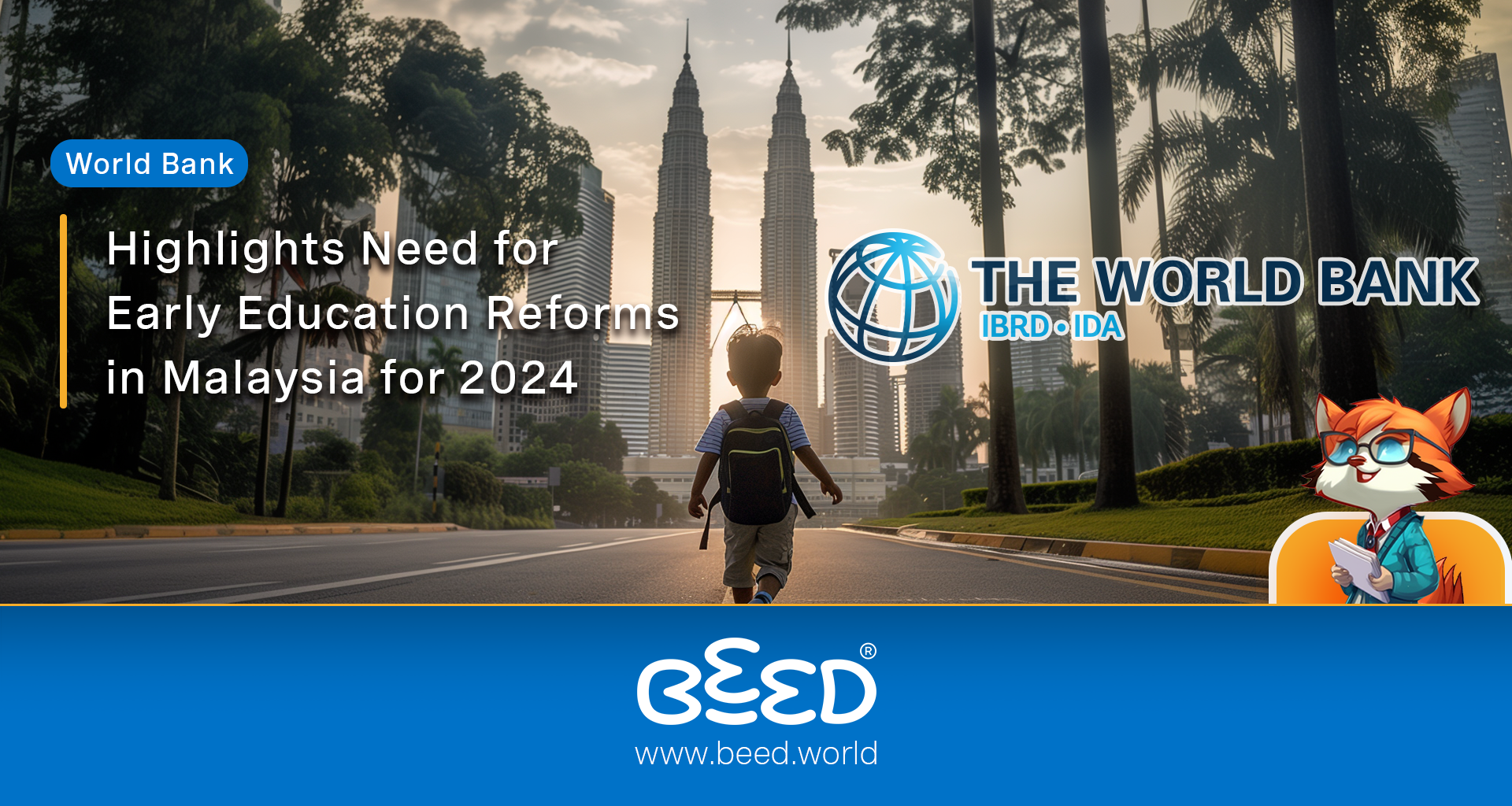News - World Bank Highlights Need for Early Education Reforms in Malaysia for 2024

The World Bank emphasises Malaysia's need for early education reforms in 2024.
In a recent report, the World Bank emphasised the critical need for Malaysia to invest in early childhood education to support long-term economic growth and skill development. The report, released in June 2024, outlines several recommendations aimed at bolstering Malaysia’s education system from its foundational stages.
Key Findings and Recommendations
The World Bank's report identifies early childhood education as a pivotal area for development. Investing in quality early education is crucial for building a strong foundation for future learning and skill acquisition, which are essential for Malaysia's continued economic development. The report suggests that improvements in this sector can lead to better educational outcomes and a more skilled workforce, aligning with Malaysia’s broader economic goals.
Government Initiatives
In response to the World Bank’s findings, the Malaysian government has announced several initiatives aimed at overhauling the education system. Prime Minister Datuk Seri Anwar Ibrahim stated that the government will focus on enhancing the quality of education starting this year. These measures are part of a broader strategy to ensure Malaysia's education system can compete globally and support the nation’s aspirations to become a developed country.
The National TVET Policy
Another significant development in Malaysia's education sector is the upcoming launch of the National Technical and Vocational Education and Training (TVET) Policy in June 2024. This policy aims to streamline TVET education activities across multiple ministries and institutions, with a focus on practical training to improve employability. The initiative includes collaborations with over 10,000 companies, ensuring that TVET graduates are well-prepared for the job market.
Higher Education Reforms
The Ministry of Higher Education has also outlined an ambitious vision for 2024, emphasising the importance of research, innovation, and internationalization. This roadmap aims to strengthen ties between academia and industry, increase the number of international students, and promote a collaborative academic culture. Our mission is to propel Malaysia's higher education system to a position of international prominence through these initiatives.
Addressing Challenges
The World Bank report highlights several challenges that require attention, despite the promising nature of these initiatives. These include ensuring equitable access to early education, bridging the digital divide, and maintaining high academic standards across all levels of education. The report calls for sustained investment and policy support to overcome these hurdles and achieve the desired outcomes.
Conclusion
The World Bank’s report and the Malaysian government’s subsequent initiatives underscore a critical juncture for Malaysia’s education system. By focusing on early education and aligning higher education and vocational training with industry needs, Malaysia aims to create a robust, inclusive, and future-ready education system. These efforts are essential for driving long-term economic growth and ensuring that Malaysia remains competitive on the global stage.